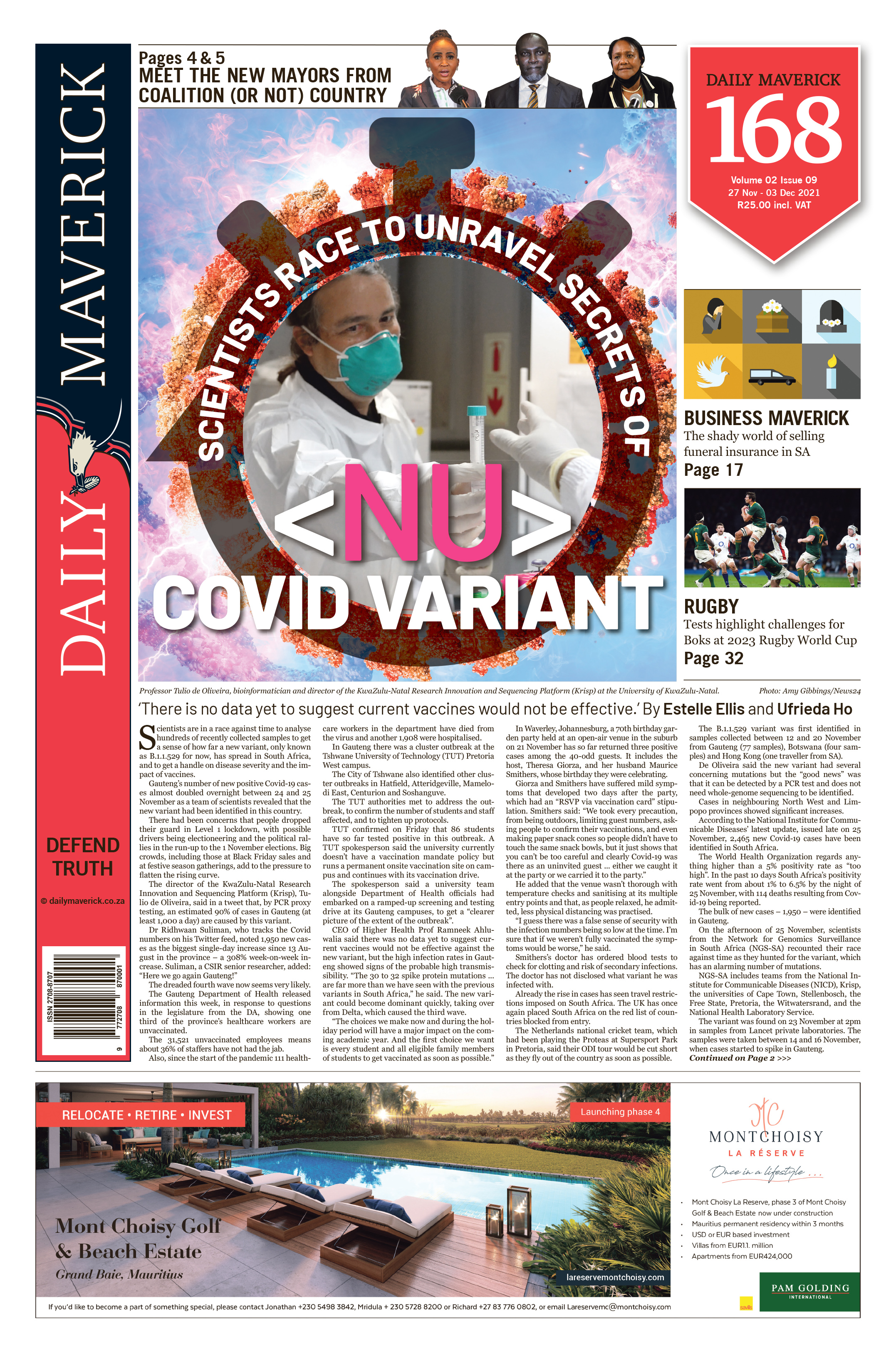I had the honour of virtually presenting, to an Italian audience, my book Made in South Africa: A Black Woman’s Stories of Rage, Resistance and Progress at Book City Milan last week.
The event gave me the opportunity to become reacquainted with my book, which has been out for just over a year. It also allowed me to share my thoughts as they emerge in my book on identity, memory and care.
In exploring the theme of identity, I shared one of my earliest memories that distorted my sense of self and identity. It was my first memory of ever coming into contact with a white person. It was the 1980s, living in what was then called Port Elizabeth with my extended family.
I was accompanying my aunt to town. I was probably four years old. I was instructed to behave, not to touch anything and basically not to exhibit any traits of a four-year-old. We would be trespassing on to white terrain.
I knew town as the place where I would see with my own eyes the white people I had seen on TV. As we were walking through town, I made the dangerous mistake of letting go of my aunt’s hand. I got lost in a sea of white people and, for a brief second, I reached for the nearest hand I could grasp, to anchor myself. I grabbed a white woman’s hand.
She looked down at me and quickly pulled away from me. The look on her face was one of disgust, affront and confusion. Then, with much alarm, my aunt scooped me up. A feeling of transgression washed over me. Very complex emotions for a four-year-old.
That moment is embedded in my memory because it was the first time I felt my inferiority. Our inferiority. I felt unwanted, detested and unprotected. That, to some extent, still remains a part of my identity having grown up black and a girl in South Africa.
Soon I was thrust into an integrated world. The people I had vowed to never touch again were now my classmates, neighbours and fellow citizens. Now we were all South Africans.
Being South African is living on a spectrum from hate to love, from belonging to alienation, from darkness to light. Being South African means reaching out your hand and performing the labour of humanising the very people who made you feel inhuman.
I shared with the audience how our Constitution attempts to move us from this uncaring past towards a more caring society. It does so most strongly with its opening three words, “We, the People”. The decision to begin our Constitution with the word ‘we’ was made by the very people who were for so long unseen and uncared for by the law.
“We” is also a potent reminder that we care for others not because of their citizenship, but because of their humanity. There is nothing more caring than thinking in terms of all people as part of the “we”.
Thinking of the “we” was further exemplified by the work of the Constitutional Court and, more specifically, clerking for Justice Edwin Cameron. I often recall when he asked what my plans were for after my clerkship. I told him I planned to work for a big firm, buy a beach house and have a driver.
He took off his glasses and said with a tinge of disappointment: “I meant, what are you going to do for others?” What are you going to do for the “we”? That is the question at the heart of a constitutional democracy.
It is not a question only posed to the government. It is a question posed to each of us. In any truly caring society, it is not about what one can get for oneself. It is about what you can do for others. By constitutional design, we have a responsibility to each other. The four-year-old in me wants to avenge my own marginalisation by caring to rise to the call of our Constitution to be part of the “we” despite our historical fracture and alienation. DM168
This story first appeared in our weekly Daily Maverick 168 newspaper which is available for R25 at Pick n Pay, Exclusive Books and airport bookstores. For your nearest stockist, please click here.

















 Become an Insider
Become an Insider
Two articles in a row, and I must still read it? Lady, for heaven’s sake, you are not a 4 year-old (how could you even remember that?). Your article , all about me, I, yet you want to diverge it into “we”. Your last paragraph (1st half) should have been your focus point. Yet it changed into me, I, yet again. To me this article is nothing but an effort to promote your book, whether it is to Italians, Greeks, English, or Icelanders. I’ve read your book, at least till halfway, but the theme is the same as in your articles on DM. Unfortunately the “we” you are referring to, is just aboutyou, the me, the I. Why DM publish it? Well, ask the editor
Lwando your four-year-old experience was a shocking realisation of the world you exist in, and a sad horrible reminder of how small minded and far removed from their own humanity people can be. How we all dream for our new generation a world far beyond what you endured. Thank you for your poignant telling and thoughts. Your story hopes for the evolution of integrity and humanity and for a society of proper people. Keep up the good work. We need this.